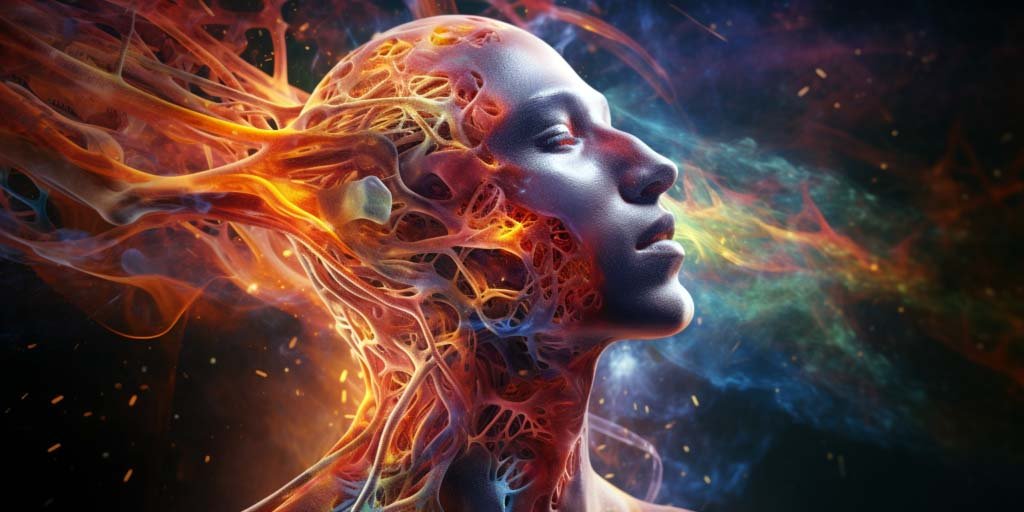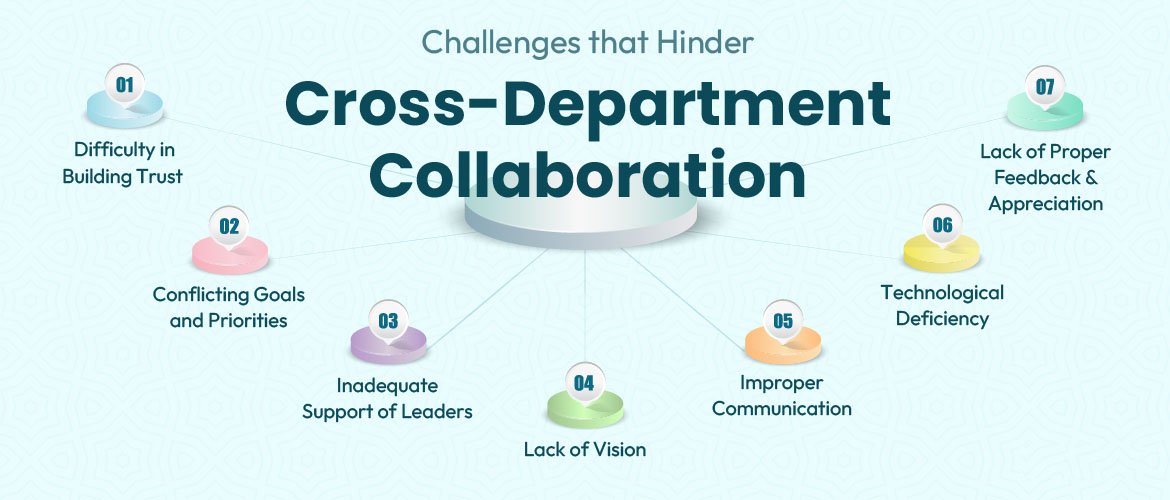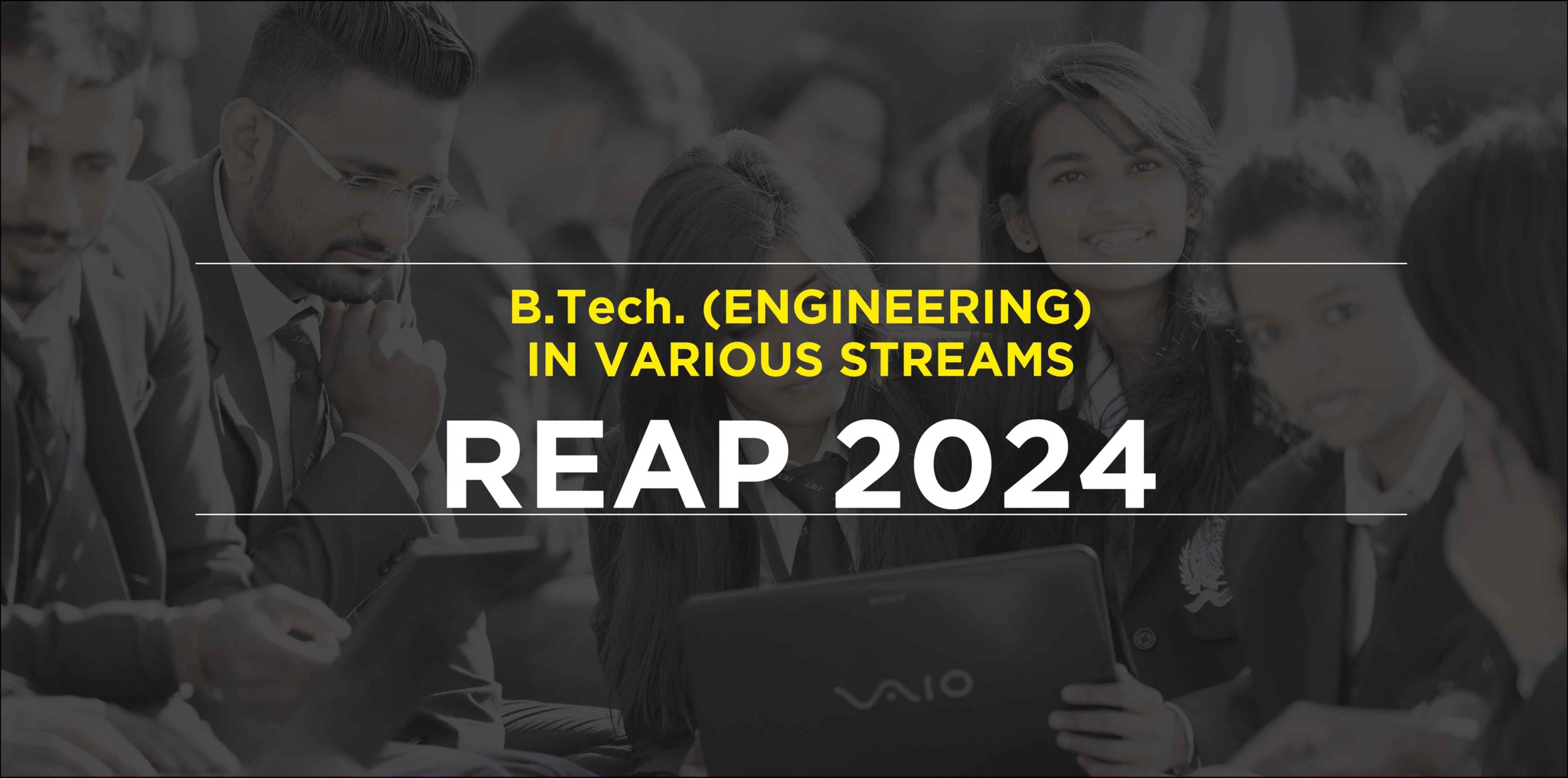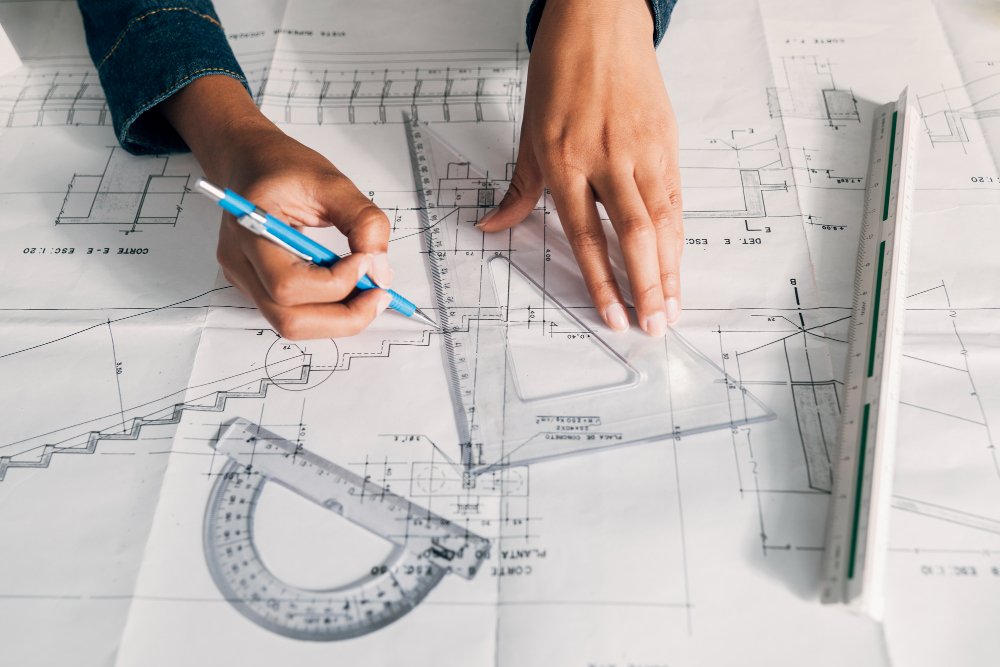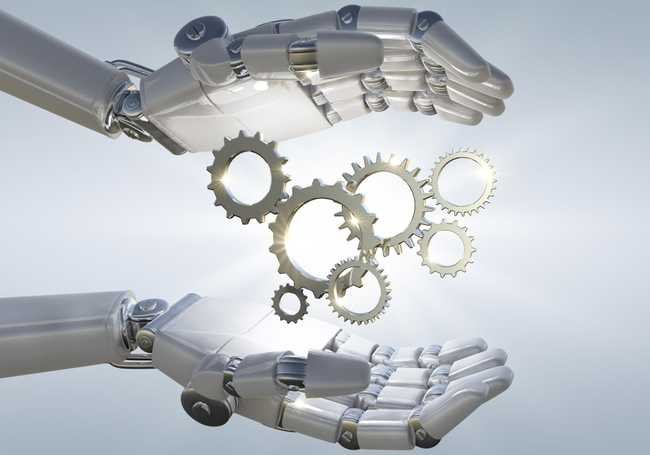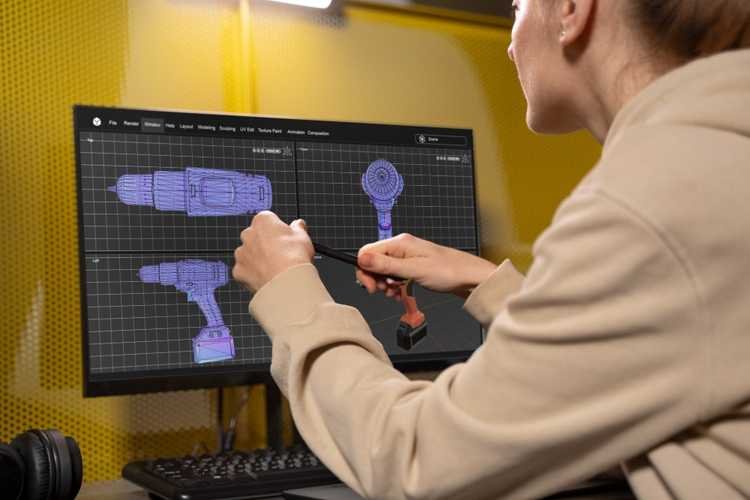From Sci-Fi to Reality: How AI is Reshaping Mechanical Engineering for the Future
Artificial Intelligence (AI) has transitioned from the pages of science fiction novels to becoming a cornerstone of modern engineering practices. In mechanical engineering, AI is driving transformative changes, enhancing productivity, precision, and innovation. This blog delves into how AI is revolutionizing the field, turning futuristic ideas into today's reality.
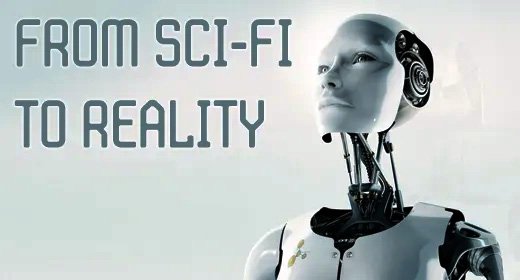
1. Design and Simulation with AI
Gone are the days of time-consuming manual design processes. AI-powered tools like generative design software enable engineers to create optimized models by simply inputting parameters such as materials, weight constraints, and performance goals.
Simulation in Real Time: AI-driven simulations allow engineers to test designs under various conditions virtually, significantly reducing the need for physical prototypes.
Precision Engineering: AI enhances Computer-Aided Design (CAD) systems, ensuring higher accuracy and reducing errors during the design phase.
2. Predictive Maintenance and Smart Manufacturing
AI is revolutionizing manufacturing by integrating predictive maintenance and smart systems into mechanical engineering.
IoT and AI Synergy: Smart sensors embedded in machinery collect real-time data. AI analyzes this data to predict potential equipment failures, enabling timely interventions.
Reduced Downtime: Predictive maintenance not only prevents costly machine breakdowns but also enhances overall efficiency in manufacturing processes.
3. Robotics and Automation
AI has pushed the boundaries of robotics, making them smarter, faster, and more adaptable. In mechanical engineering:
Collaborative Robots (Cobots): AI-driven cobots work alongside humans in manufacturing environments, enhancing productivity and safety.
Autonomous Systems: From automated assembly lines to self-operating drones, AI is enabling unprecedented levels of automation.
4. Advanced Materials Discovery
AI accelerates the discovery of new materials by predicting their properties and performance under different conditions.
Material Optimization: AI algorithms can analyze vast datasets to identify the best materials for specific applications, reducing costs and improving performance.
Sustainable Engineering: By identifying environmentally friendly alternatives, AI contributes to the development of sustainable materials.
5. Energy Optimization
AI helps mechanical engineers design and optimize energy-efficient systems, playing a crucial role in sustainability.
Smart Energy Systems: AI optimizes energy usage in manufacturing plants by analyzing consumption patterns.
Green Technologies: AI aids in developing renewable energy solutions, such as wind turbines and solar panels, ensuring maximum efficiency.
6. Education and Skill Development
AI is reshaping how mechanical engineering is taught and practiced.
Virtual Labs and Training: AI-driven virtual reality (VR) and augmented reality (AR) systems provide hands-on training opportunities in a risk-free environment.
Continuous Learning: AI-powered learning platforms help engineers stay updated with the latest advancements in the field.
Challenges and Ethical Considerations
While AI offers unparalleled opportunities, it also poses challenges such as data security, job displacement, and ethical concerns around decision-making processes in automated systems. Engineers must address these issues to harness AI responsibly.
Conclusion
Join JIET Universe, where innovation meets excellence. Our cutting-edge programs empower students with the skills to lead the AI revolution in mechanical engineering. Explore opportunities to learn, innovate, and excel with state-of-the-art facilities and expert mentorship.
In the realm of mechanical engineering, precision is key, and fluid dynamics has always been a complex but vital aspect. Computational Fluid Dynamics (CFD).
Artificial Intelligence (AI) has transitioned from the pages of science fiction novels to becoming a cornerstone of modern engineering practices.
In today's fast-changing world, the lines between different subjects are unclear. Interdisciplinary learning—where knowledge from different fields.
At JIET, the drive to nurture entrepreneurship and leadership is more than just an initiative—it's part of our core mission. As we prepare students for a fast-changing world
In this rapidly evolving engineering landscape, technical expertise is crucial. However, it's not the only factor. The ability to share ideas, work in teams.
In an ever-changing world, the need for visionary leaders and innovative entrepreneurs is paramount. JIET Universe recognizes this imperative and has developed specialized programs.
Choosing the right engineering specialization is crucial for your academic and professional journey. JIET offers a variety of engineering specializations, each with unique focus areas.
Technology is advancing rapidly, changing industries and societies. As we move through 2024, several new technologies will significantly impact various sectors.
The Rajasthan Engineering Admission Process (REAP) 2024 is a key step for students aiming for engineering degrees in Rajasthan. Conducted by the Rajasthan Technical University (RTU), REAP helps students get into B.Tech.
Turning a creative idea into a tangible product is both an art and a science. The design process is crucial in translating abstract concepts into real-world solutions.
At JIET Universe, we are committed to fostering academic excellence and ensuring education is accessible to all. We are delighted to announce a diverse range of scholarship opportunities.
JIET Universe is excited to announce new courses and expanded scholarship opportunities for the academic year 2024-2025. These advancements align with our commitment to providing high-quality education.
Missing out on IIT or NIT isn't the end of your engineering dreams. JIET Universe is here to show you that your aspirations are still within reach.
Ace Your Engineering Entrance Exam: Insider Tips Getting ready for engineering entrance exams? It's a big step, but don't worry! JIET College's own grads are here to guide you through it.
Embark on an Unforgettable College Adventure - Are you ready to start your college journey at JIET Universe? Nestled in the vibrant city of Jodhpur, Rajasthan, JIET is more than just an institution
Earning a degree from the best engineering college in Rajasthan is an exciting first step toward a fulfilling career. Now, it's time to get your first job. It might seem challenging,
In the dynamic realm of mechanical engineering, the ability to design, simulate, and execute projects with precision is paramount. AutoCAD, a leading software in computer-aided design
When you think of the crème de la crème of technological research in India, the Indian Institutes of Technology (IITs) are undeniably at the top of the list.
In the diverse world of academia, the ethos of an institution is often reflected in its infrastructure. The Indian Institutes of Technology (IITs) stand as monumental examples.
The realm of academia has always been dynamic, evolving with the times. Institutions like the Indian Institutes of Technology (IITs) have consistently been at the forefront,
India is home to a plethora of premier engineering institutions, among which the Indian Institutes of Technology (IITs) and the National Institutes of Technology (NITs) stand tall.
The Joint Entrance Examination (JEE) is undoubtedly one of the most challenging competitive exams in India. Each year, millions of students aspire to crack this examination to secure a seat in premier engineering institutions,
Jodhpur, the mesmerizing Blue City, isn't just about royal forts, spicy kachoris, and majestic sunsets. Enter the world of the JIET Universe, and you’ll discover a unique blend of academic disciplines
As we embrace the dawn of the 21st century, it's evident that the future is here - and it's automated. Robots and automation, previously confined to the realms of science fiction
Throughout the history of engineering, few developments have had as significant an impact as the emergence of Computer-Aided Design (CAD) software.
Engineering is the fulcrum on which the wheel of modern innovation rotates. From the omnipresent technologies in our homes to infrastructural marvels, the profound impact of engineering on our lives is undeniable.

